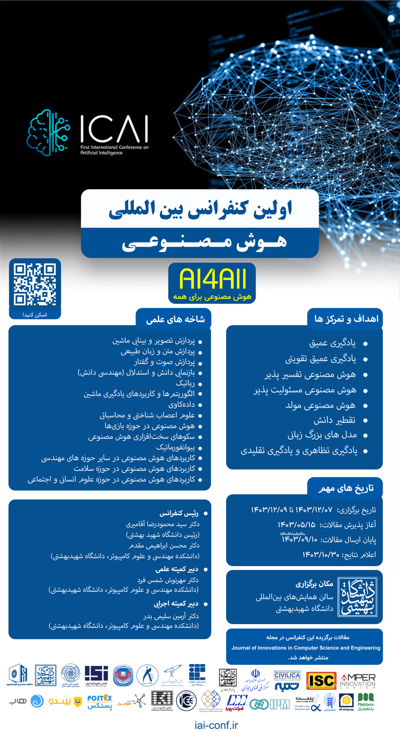0% Complete

نویسندگان :
کلمات کلیدی :
چکیده :
لیست مقالات بایگانی شده
Fateme Darkhal - Seyyed Ali Zendehbad - Zahra Sedaghat
Seyyed Ali Zendehbad - Farinaz Azari - Hadi Dehbovid
Aliasghar Ahmadi
Mahdie Azizi hashjin - Mahsa Yaghoobi - Babak Nouri-Moghaddam
Rahim Mohebbi Gargari - Ali Shalbafan - Seyed Jalil Alavi - Maryam Amirmazlaghni - Seyed Hamzeh Sadatnejad - Heiko Thoemen
محمد هادی امینی - خدیجه نعمتی - صفورا عاشوری
Rana Poureskandar - Abbas Mirzaei - Babak Nouri-Moghaddam
Safoura Ashoori - Khadigh Nemati - Mohamad hadi Amini
Nastaran Hassanzadeh - Mohammad Saniee Abadeh
Maryam Saadaat Nabavi Meybodi

